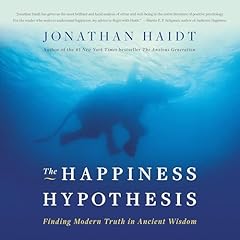
The Half-life of Facts
Why Everything We Know Has an Expiration Date
No se pudo agregar al carrito
Add to Cart failed.
Error al Agregar a Lista de Deseos.
Error al eliminar de la lista de deseos.
Error al añadir a tu biblioteca
Error al seguir el podcast
Error al dejar de seguir el podcast
Obtén 3 meses por US$0.99 al mes
 Exclusivo para miembros Prime: ¿Nuevo en Audible? Obtén 2 audiolibros gratis con tu prueba.
Exclusivo para miembros Prime: ¿Nuevo en Audible? Obtén 2 audiolibros gratis con tu prueba.
Compra ahora por $18.63
-
Narrado por:
-
Sean Pratt
-
De:
-
Samuel Arbesman
New insights from the science of science....
Facts change all the time. Smoking has gone from doctor recommended to deadly. We used to think the Earth was the center of the universe and that Pluto was a planet. For decades, we were convinced that the brontosaurus was a real dinosaur. In short, what we know about the world is constantly changing. But it turns out there’s an order to the state of knowledge, an explanation for how we know what we know.
Samuel Arbesman is an expert in the field of scientometrics - literally the science of science. Knowledge in most fields evolves systematically and predictably, and this evolution unfolds in a fascinating way that can have a powerful impact on our lives. Doctors with a rough idea of when their knowledge is likely to expire can be better equipped to keep up with the latest research. Companies and governments that understand how long new discoveries take to develop can improve decisions about allocating resources. And by tracing how and when language changes, each of us can better bridge generational gaps in slang and dialect. Just as we know that a chunk of uranium can break down in a measurable amount of time - a radioactive half-life - so too any given field’s change in knowledge can be measured concretely.
We can know when facts in aggregate are obsolete, the rate at which new facts are created, and even how facts spread.
Arbesman takes us through a wide variety of fields, including those that change quickly, over the course of a few years, or over the span of centuries. He shows that much of what we know consists of “mesofacts” - facts that change at a middle timescale, often over a single human lifetime. Throughout, he offers intriguing examples about the face of knowledge: what English majors can learn from a statistical analysis of The Canterbury Tales, why it’s so hard to measure a mountain, and why so many parents still tell kids to eat their spinach because it’s rich in iron. The Half-life of Facts is a riveting journey into the counterintuitive fabric of knowledge. It can help us find new ways to measure the world while accepting the limits of how much we can know with certainty.
©2012 Samuel Arbesman (P)2012 Gildan Media LLCLos oyentes también disfrutaron:




















Reseñas de la Crítica
Las personas que vieron esto también vieron:



If you could sum up The Half-life of Facts in three words, what would they be?
The acquired perspective gained by understanding the fluid change of knowledge, that is the idea that facts have a life, is intimidating at first. By understanding how information changes the knowledge of facts, we can overcome our feelings of inadequacy when we do not think we know enough about a situation.Knowledge changes and more importantly, not everyone is comfortable with that constantly changing landscape. This means that the marketplace is constantly changing because we can never have all the answers.
How liberating to know that decisions are made on known facts which are assumed to be true temporally!
I admired the painstakingly presented examples and the perspective of science, medicine and business.
I recommend this book highly.
What did you like best about this story?
The connection of the author to his father the scientist is powerfull.Ground breaking knowledge
Se ha producido un error. Vuelve a intentarlo dentro de unos minutos.
Is there anything you would change about this book?
I would have liked it to include more incidents and information about how things we take to be facts cease being so. The book was far more about the accretion of new facts and how we can predict that than it was about the retirement of old facts that are no longer considered true. Of the discussion that there was about facts going away, it was more about facts that were not actually proven to be errors...they tended to just become obsolete and irrelevant but still basically true.Misleading title
Se ha producido un error. Vuelve a intentarlo dentro de unos minutos.
it was true, once
Se ha producido un error. Vuelve a intentarlo dentro de unos minutos.
The voice changes are annoying
Se ha producido un error. Vuelve a intentarlo dentro de unos minutos.
Nothing is constant and what we consider true today will be supplanted tomorrow. I also enjoyed the journey through data analytics and how new discoveries can be found in data sets in ways not anticipated.
The Changing World of Facts & Analytics
Se ha producido un error. Vuelve a intentarlo dentro de unos minutos.


